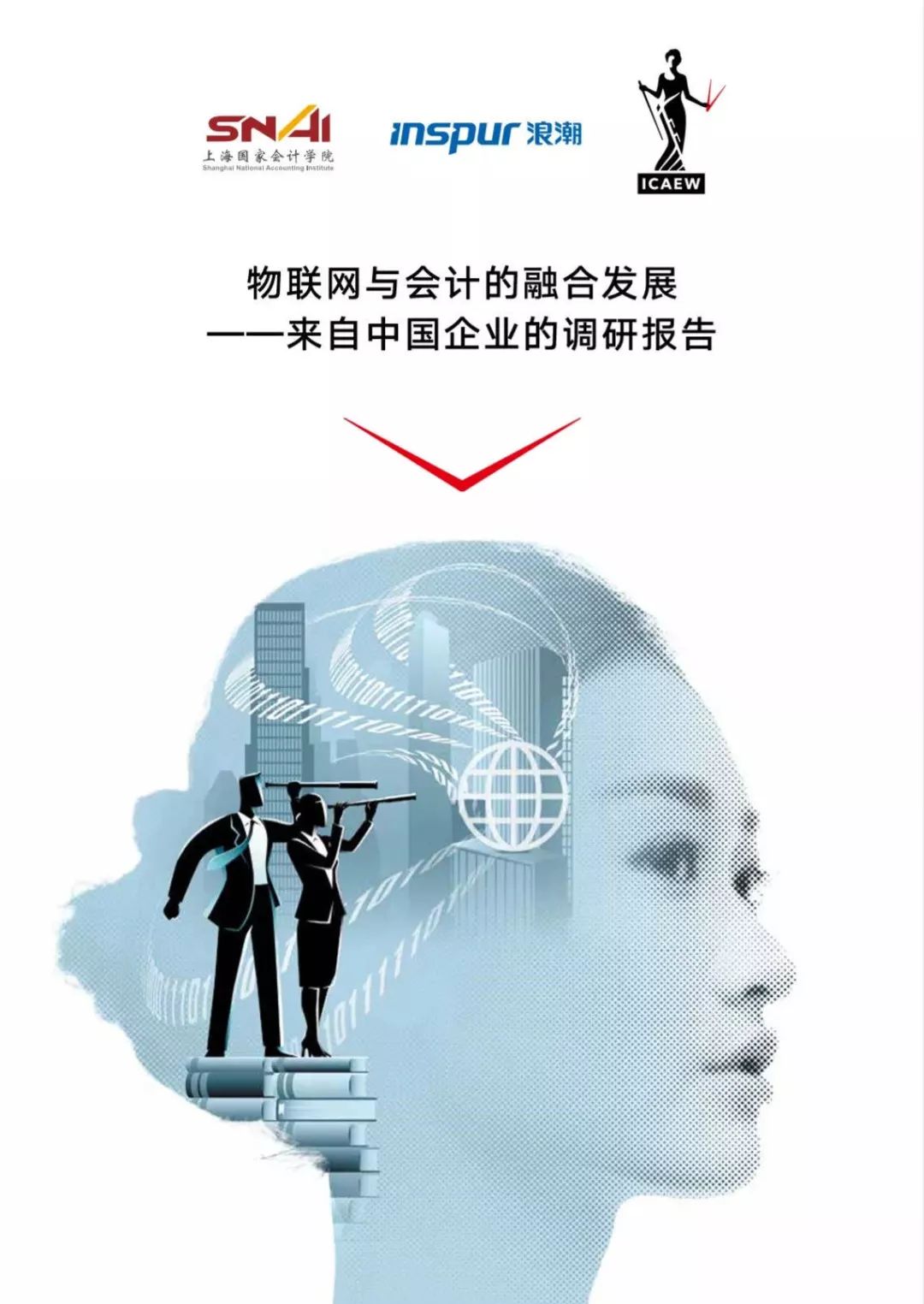物联网(IoT)权威报告已重磅发布
发布时间:2019-12-02 18:02
如果你相信“能够被衡量的事物也能够被管理”,那么你就会渴望把握住物联网(IoT)所带来的机遇。
随着数据处理能力和传感器已经运用到日常生活中的诸多方面,我们可以衡量的事物范畴正在迅速扩大。在很大程度上,不断产生和收集到的数据与高质量的分析结合起来,有助于做出更好的决策。
物联网技术已融入到工业机器和消费产品中,包括:传感器、摄影机、可以通过移动或控制使任务自动化的驱动器、用于广播、接收消息和数据的发射器和接收器,以及能够在设备内处理数据的计算机芯片,即边缘计算。

为了形成物联网,这些技术需要一种可以相互连接,以及连接到云端或私有服务器的方式。通过云端和边缘设备进行数据分析和处理的软件应用也可以被视为物联网技术基础设施的一部分。
这可能对社会、企业,尤其是会计行业产生深远影响。物联网提供了许多潜在的好处—— 从帮助我们更有效地分配地球上有限的资源,到免除了在做会计估计时对不确定事项的猜测。它可以在可持续性、提高人民生活质量和提高生产力方面扮演重要角色。例如,在车辆方面,物联网可以提供预防性维护、降低能耗、优化路线规划、资产共享等功能,还可以精确计算损耗和使用寿命。物联网技术更加直接的运用包括:更加精确和自动化的交易处理技术、更精准的资产追踪、自动化库存盘点和提升资产利用率。
与此同时,公司也在其他方面可以利用物联网数据来更好地管理成本、收入、员工以及控制风险。将物联网的各种用途整合在一起,更有助于形成新的战略和新的商业模式。
然而,我们也必须对风险保持警惕。例如,电网、医院和交通系统等重要基础设施,一旦连接到互联网,就很容易遭到恶意攻击。物联网还会造成隐私和伦理问题,因为它产生的大量数据将与人们的个人习惯、特征甚至健康有关。
对于特许会计师而言,了解如何利用物联网提供的机会,同时明确怎样管理风险是至关重要的。为了帮助我们做到这一点,ICAEW联合上海国家会计学院(SNAI)以及中国知名科技公司浪潮(Inspur)共同开展了一个研究项目。此项目包括对中国相关企业的调研采访,资料文献分析以及对ICAEW会员的访谈。

由此共同发布的《物联网与会计的融合发展 — 来自中国企业的调研报告》对物联网提供了清晰全面的介绍,并分析了它在管理和会计领域的潜在影响。了解更多报告信息,请点击下方阅读原文。
The internet of things and accounting: lessons from China
If you’re a fan of the mantra, 'what gets measured, gets managed', then you’ll be keen to embrace the opportunities provided by the internet of things (IoT).
Because computing power and sensors can now be embedded into so many everyday objects, the scope of what we can measure is rapidly expanding. This constant generation and collation of data, combined with high-quality analysis, contributes substantially to better decision-making.
The technologies that can be integrated into objects such as industrial machines and consumer products include: sensors;video cameras;actuators, which can move or control a mechanism enabling the automation of tasks; transmitters and receivers, which enable the broadcast and receipt of messages and data; and computer chips, which enable data processing within the device – this is known as edge computing.

In order to form the IoT these technologies require a means of connecting to each other and to the cloud or private servers. The software, both in the cloud and at the edge, used to analyse and act on IoT data can also be considered part of the IoT technical infrastructure.
This could have profound implications for society, business and specifically the accountancy profession. The IoT offers many potential benefits - from helping us to manage the planet’s limited resources more effectively, to taking the guesswork out of accounting estimates. It could play a major role in sustainability, improve the quality of people’s lives and enhance productivity. For example, when it comes to vehicles, the IoT enables preventative maintenance, reduced energy consumption, optimal route planning, asset sharing and accurate useful-life and depreciation calculations.
More straightforward uses included: more accurate and automated transaction processing;better asset tracking;automated stock checking;improved asset utilisation. But companies were also using IoT data in many other ways to enable better management of costs, revenues, risks and people. Taken together the various uses of the IoT are clearly enabling new strategies and new business models.
We must, however, also be wary of the risks. For example, once connected to the internet, vital infrastructure – such as energy grids, hospitals and transport systems – becomes vulnerable to attack from malevolent actors. The IoT also gives significant rise to issues of privacy and ethics, because a lot of the data it generates will relate to people’s individual habits, characteristics, or even health.
It is crucial that chartered accountants know how to embrace the opportunities provided by the IoT, while managing the risks. To assist us to do this, ICAEW’s Business and Management Faculty worked with the Shanghai National Accounting Institute (SNAI) and leading Chinese tech company Inspur, on a joint research project. This included interviewing Chinese businesses, analysing relevant literature and speaking with ICAEW members.

The resulting report, The internet of things and accounting: lessons from China, provides a clear and accessible introduction to the IoT and examines its potential impact on management and accounting.